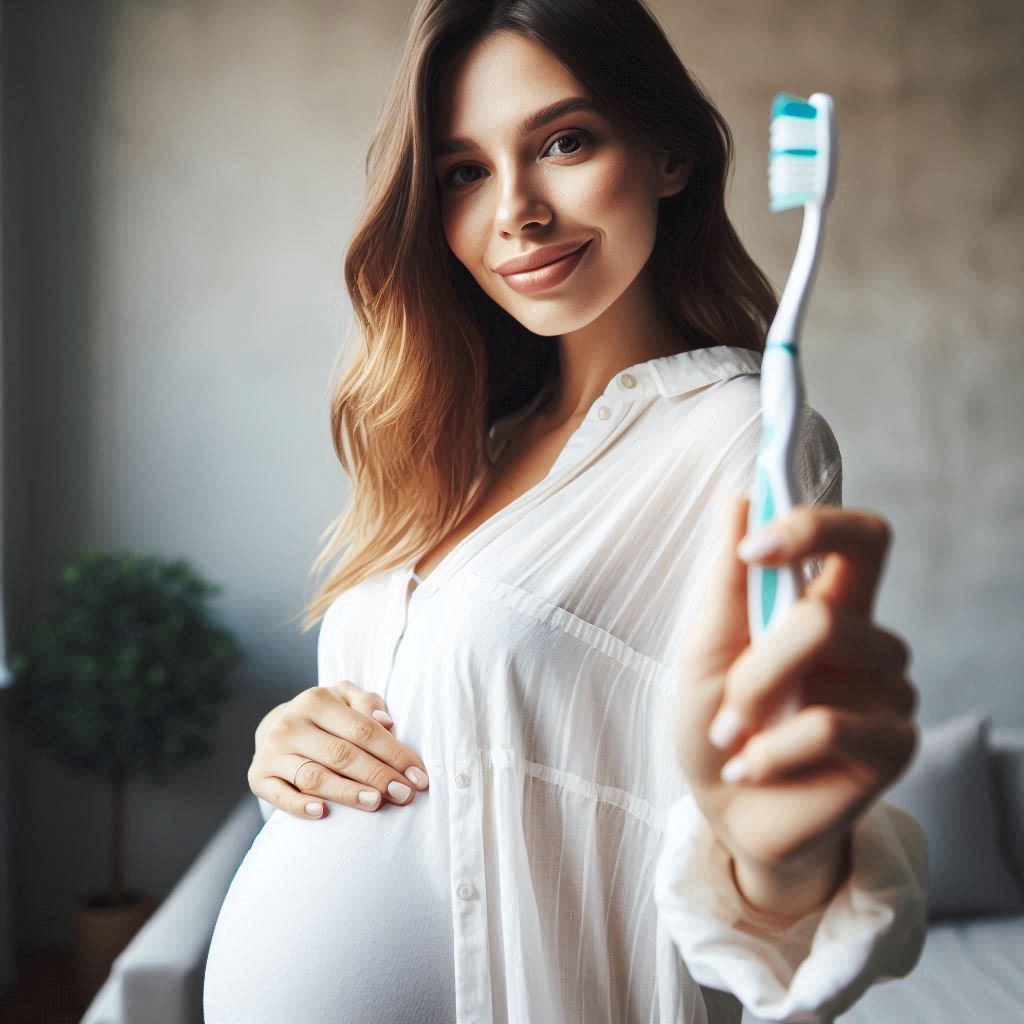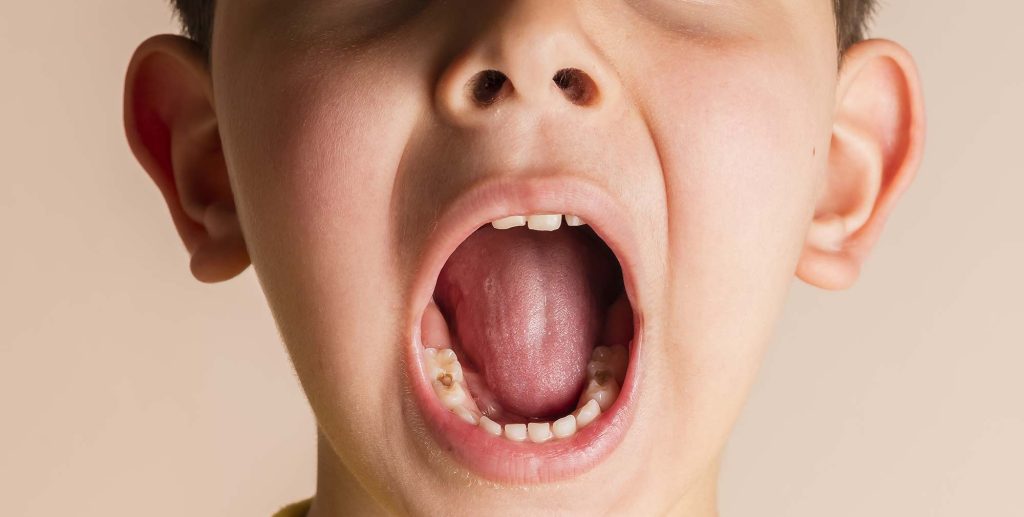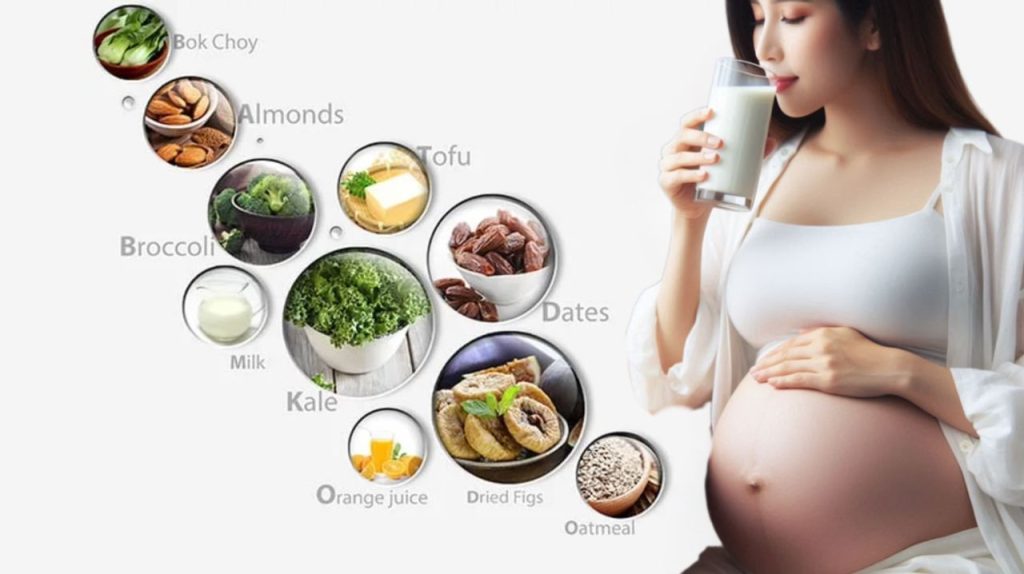Pregnancy is a beautiful and transformative journey in a woman’s life. It is a time filled with anticipation, excitement, and profound changes. However, this period also brings significant physical and hormonal changes that require special attention, especially when it comes to oral health. Maintaining good dental hygiene during pregnancy is not only crucial for the mother but also for the developing baby. Proper dental care can prevent potential complications and ensure a healthy smile for both mom and baby. This article outlines essential tips for maintaining dental health during pregnancy and postpartum.
Why Is Dental Care During Pregnancy Important?
Did you know that pregnant women are 15 times more likely to develop dental infections and gum diseases compared to others? The primary cause of these issues is the accumulation of plaque on the teeth. Oral health is essential for both the mother and the baby during pregnancy.

1. Dental Care During Pregnancy Can Improve Baby’s Health
According to reports from the CDC, children of mothers with poor oral health, including decayed or missing teeth, are over three times more likely to suffer from tooth decay than other children. Additionally, poor oral health is linked to premature birth and low birth weight. Therefore, if you are newly pregnant, now is the perfect time to schedule a dental appointment.

2. Hormonal Changes During Pregnancy Can Increase the Risk of Gum Disease and Tooth Decay
During pregnancy, the hormone progesterone increases in the body, which aids in fetal growth but also causes changes in the mouth that can increase the risk of gingivitis and tooth decay. Elevated progesterone levels result in more plaque buildup on the teeth, which can lead to tooth decay and gum swelling. If left untreated, this inflammation can develop into periodontal disease. For more insights, check out The Connection Between Oral Health and Systemic Diseases.
3. Teeth May Shift During Pregnancy
Pregnancy hormones can cause gum swelling (gingivitis) and soften the jawbone, leading to slight shifts in tooth positioning. If you experience discomfort or pain when chewing hard foods like apples or crackers, it might be due to changes in tooth positioning. You may also notice increased tooth sensitivity when brushing or flossing. Always consult your dentist with any concerns, but remember that some sensitivity is normal.
4. Avoid Certain Oral Care Products During Pregnancy

Just as you avoid harmful foods during pregnancy, you should also steer clear of certain oral care products that might harm you or your baby. For example, avoid products containing alcohol as they can be harmful to the fetus. Also, consult your dentist before undergoing treatments like teeth whitening or using fluoride.
5. Protecting Your Teeth from Morning Sickness

Morning sickness is a common issue during pregnancy that can damage your teeth. The stomach acid that enters your mouth during vomiting can erode tooth enamel and increase the risk of tooth decay. Here are some tips to protect your teeth:
- Do not brush your teeth immediately after vomiting: Brushing immediately can cause more damage to softened enamel.
- Rinse your mouth with water and baking soda: After vomiting, rinse your mouth with a mixture of water and baking soda to neutralize the stomach acid. Mix one teaspoon of baking soda in a glass of water and rinse thoroughly.
- Use water to rinse: Swishing your mouth with water can help remove stomach acid and reduce the risk of tooth decay.
- Wait before brushing: Wait at least 30 minutes before brushing your teeth to allow the enamel to harden again.
6. Postpartum Dental Care is Also Important

When scheduling postpartum visits, don’t forget to book a dental appointment. Nursing mothers need to be extra vigilant about oral hygiene because the high sugar content in milk (lactose) in their saliva can increase the risk of tooth decay.
7. Nutritional Considerations for Dental Health

A well-balanced and diverse diet is vital for both the mother’s health and the development of the fetus. Eating a variety of foods rich in vitamins, minerals, proteins, and fiber is essential. Some dietary recommendations include:
- Calcium-rich foods: Such as milk, yogurt, cheese, and leafy green vegetables like kale and spinach. Calcium helps strengthen teeth and bones.
- Vitamin D: Found in fatty fish like salmon, egg yolks, and fortified cereals. Vitamin D aids in the absorption of calcium.
- Vitamin C: Present in citrus fruits, bell peppers, and strawberries, helps strengthen gums.
- Phosphorus-rich foods: Such as fish, eggs, and lean meats, which support healthy teeth development.
To learn more about maintaining a healthy diet during pregnancy, visit our guide on How to Prevent Tooth Decay.
Frequently Asked Questions
1. Is it safe to visit the dentist during pregnancy?
Yes, visiting the dentist during pregnancy is safe and highly recommended. Hormonal changes during pregnancy can increase the risk of gum inflammation and dental problems. Regular dental check-ups help detect and prevent these issues, ensuring better health for both the mother and the baby. Be sure to inform your dentist about your pregnancy. For more on dental checkups, read Why Regular Dental Checkups Matter: The Secret to a Healthy, Confident Smile.
2. What foods should be avoided during pregnancy?
During pregnancy, it is advisable to avoid raw or undercooked meats, high-mercury fish, unpasteurized dairy products, and processed foods. These can pose risks to both the mother and the baby. Additionally, it’s best to limit sugary foods and drinks as they can increase the risk of tooth decay.
3. How does a healthy diet affect my baby’s teeth and health?
A healthy diet during pregnancy directly impacts the development of the baby’s teeth and overall health. Nutrients like calcium, vitamin D, and phosphorus are essential for building strong teeth and bones. Proper nutrition not only benefits the mother’s health but also helps form the baby’s teeth and bones. For more tips on dental health, read Understanding Tooth Sensitivity: Causes, Symptoms, and Treatments.
4. Should I take vitamin supplements during pregnancy?
Yes, but always consult your dentist or healthcare provider before taking any supplements. Supplements like calcium and vitamin D are essential during pregnancy and postpartum to support dental health.
Key Tips for Maintaining Oral Health During Pregnancy and Beyond
- Regular Dental Checkups: Continue seeing your dentist during pregnancy and postpartum to prevent and treat any dental issues early.
- Healthy Diet: Foods rich in calcium, fiber, and vitamins are essential for oral health and overall well-being. Limit sugary foods and drinks.
- Maintain Daily Oral Hygiene: Continue brushing and flossing regularly even during pregnancy and after childbirth to avoid dental issues.
- Stay Hydrated: Drink plenty of water to prevent dry mouth, especially during breastfeeding.
Conclusion
Proper dental care during pregnancy and postpartum is crucial for maintaining the health of both the mother and the baby. Regular doctor visits, good oral hygiene, a healthy diet, and stress management are essential elements of a healthy pregnancy and postpartum experience. By taking proactive steps, potential complications can be avoided, leading to a healthier future for both mother and child.
For more personalized consultations or information, feel free to contact us for guidance.
